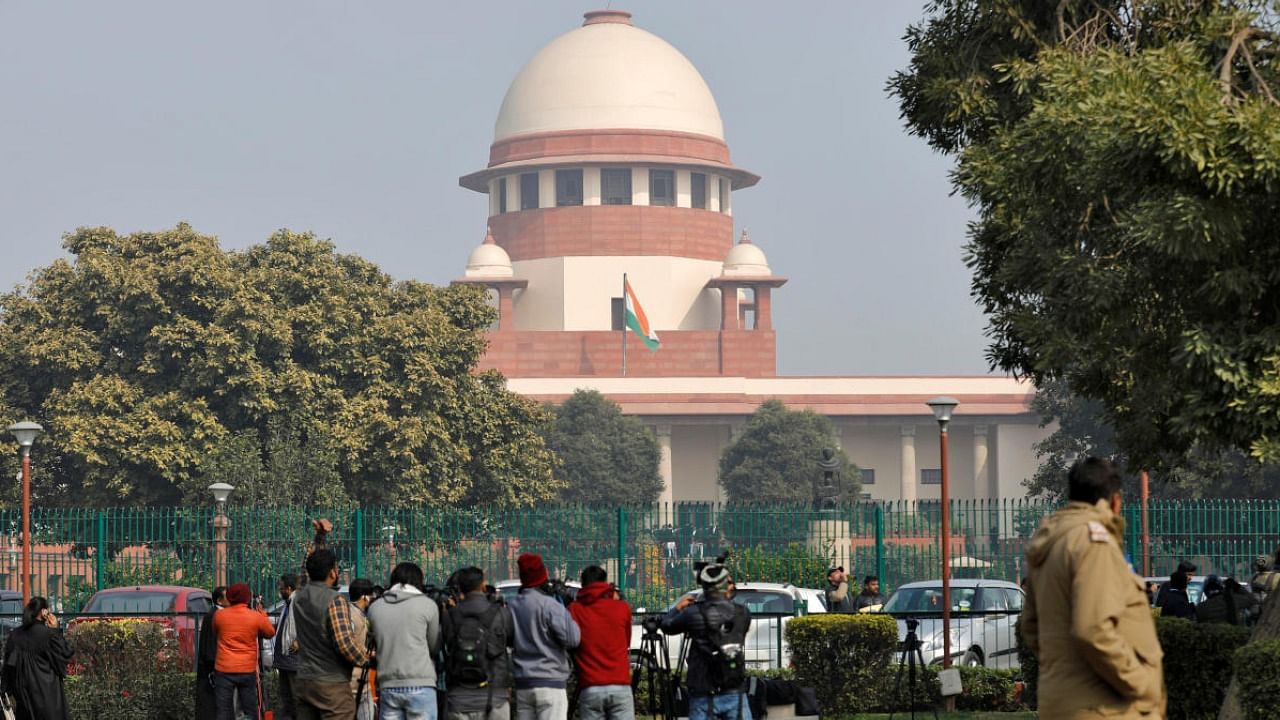
The Supreme Court on Friday issued notice to the Union government and the Attorney General on two petitions seeking a direction to recognise same sex marriage under the Special Marriage Act, 1954.
A bench of Chief Justice D Y Chandrachud and Justice Hima Kohli sought a response from the Centre and A-G R Venkataramani within four weeks on the issue related to recognition of alliance between LGBTQ+ community members.
The top court admitted two petitions, one by Supriyo Chakraborty and Abhay Dang, and another by Parth Phiroze Mehrotra and Uday Raj Anand for consideration.
The petitioners led by senior advocate Mukul Rohatgi said the issue was a sequel to Navtej Singh Johar (decriminalising Section 377 of IPC) (2018) and K S Puttaswamy (right to privacy) (2017) judgements. Contending that the petitioners wanted recognition of marriage under the Special Marriage Act, the counsel pointed out the issue is related to life as it got the impact on health and succession.
Also read: Kerala temple says no to transgender wedding
Senior advocate Neeraj Kishan Kaul cited the Centre's statement before the Kerala High Court in a pending matter that it was taking steps to seek transfer of similar issues before the top court. A number of similar pleas were pending before different High Courts including of Delhi.
Notably, the Centre had earlier before the Delhi High Court, in a similar plea, opposed same-sex marriage saying, marriage in India is not just a union of two individuals but an institution between a biological man and woman and judicial interference will cause "complete havoc with the delicate balance of personal laws."
It had also maintained decriminalising homosexuality has nothing to do with same-sex marriage.
The plea by Chakraborty and Dang before the top court contended they have been living as a couple for 10 years and sought a direction for recognition of their union under the Special Marriage Act.
In their plea, the petitioners contended that the Supreme Court has always protected the right of inter-caste and inter-faith couples to marry a person of their choice.
"Same sex marriage is a continuation of this constitutional journey. In the Navtej Singh Johar and Puttaswamy cases, the Supreme Court has held that LGBTQ+ persons enjoy the right to equality, dignity and privacy guaranteed by the Constitution on the same footing as all other citizens. So thereby, the right to marry a person of one's choice should extend to LGBTQ+ citizens, as well," their plea said.
In their petition, Mehrotra and Anand contended that the legal framework governing the institution of marriage in this country does not presently allow members of the LGBTQ+ community to many the person of their choice and enforce the fundamental right which has been guaranteed to them under our Constitution.
"This is violative of the fundamental rights guaranteed under Part III of the Constitution, including Articles 14, 15, 19(1)(a)," their plea said, adding they wanted assertion of the fundamental right to marry any person of their choice, irrespective of gender identity and sexual orientation.
They submitted that they were presently raising two children together, but unfortunately the fact that they cannot legally solemnize their marriage has resulted in a situation where both the petitioners cannot have a legal relationship of parent and child with both their children.
"Today, both children have the legal relationship of a child and parent only with Petitioner No. 2. As such, in the eyes of the law, Petitioner No. I has no legally recognised relationship with his children, a circumstance which causes not only immense anguish, but also significant practical problems. This situation is particularly paradoxical given the fact that the Petitioner No. I is the primary care giver for both the children," their plea said.
